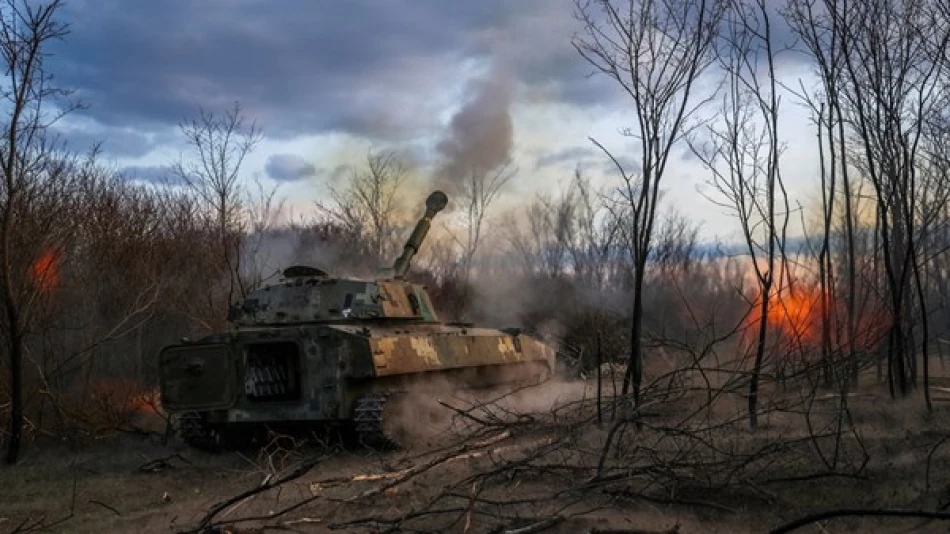
Kremlin Accuses Europe of Fueling Ukraine Crisis: Geopolitical Tensions Escalate
Russia Blames Europe for Sabotaging Trump's Ukraine Peace Efforts as Military Campaign Accelerates
The Kremlin has accused European powers of deliberately undermining President Donald Trump's diplomatic initiatives to end the war in Ukraine, while simultaneously announcing that Russian forces have doubled their territorial gains in recent months. This dual message signals Moscow's strategy of positioning itself as open to negotiations while maintaining military pressure—a familiar playbook that could complicate any genuine peace process.
Moscow's Diplomatic Blame Game
Kremlin spokesperson Dmitry Peskov told reporters that certain European parties continue to obstruct both American and Russian efforts regarding Ukraine. This accusation appears designed to drive a wedge between Trump and traditional NATO allies, particularly as the new administration seeks to fulfill campaign promises of ending the conflict quickly.
"We are ready to solve the problem through political and diplomatic means," Peskov stated, "but we do not see any similar steps from Kyiv to achieve this purpose. Therefore, we will continue the special military operation."
The timing of these statements is significant, coming just days after Trump's inauguration and his repeated claims that he could end the war within 24 hours. By blaming Europe while expressing readiness for diplomacy, Russia appears to be testing whether it can exploit potential divisions within the Western alliance.
Accelerating Military Gains Undermine Peace Rhetoric
Russian Defense Minister Andrei Belousov revealed on Friday that Russian forces have significantly accelerated their advance in Ukraine, now controlling between 600-700 square kilometers monthly compared to 300-400 square kilometers at the beginning of 2024. This represents a near-doubling of territorial acquisition rates.
Strategic Implications of Increased Momentum
The acceleration in Russian advances suggests several concerning developments. Ukrainian forces may be experiencing increased strain after nearly three years of conflict, while Russia appears to have adapted its tactics following earlier setbacks. This military momentum gives Moscow significant leverage in any potential negotiations—a position it's unlikely to abandon easily.
The contradiction between diplomatic overtures and military escalation follows a pattern established throughout the conflict, where Russia has used peace talks as cover for continued territorial expansion.
Testing Trump's Diplomatic Approach
Russia's strategy of blaming European "obstruction" while claiming openness to dialogue appears calculated to appeal to Trump's known skepticism toward traditional allies and multilateral approaches. During his campaign, Trump frequently criticized European NATO members and suggested he could negotiate directly with Putin.
However, this approach faces significant obstacles. Any sustainable peace agreement would require European support, given the continent's security interests and substantial aid commitments to Ukraine. By preemptively blaming Europe, Russia may be setting up excuses for diplomatic failures while continuing military operations.
Market and Geopolitical Consequences
The mixed signals from Moscow create uncertainty for global markets, particularly energy and defense sectors. European natural gas prices remain volatile amid ongoing supply concerns, while defense contractors continue to benefit from sustained military spending across NATO countries.
For investors, Russia's accelerating military gains suggest the conflict may continue longer than Trump's optimistic timeline suggests, potentially maintaining elevated defense spending and energy market disruptions throughout 2025.
The Kremlin's latest statements reveal the complex dynamics facing any peace initiative. While expressing theoretical openness to diplomacy, Russia's actions on the ground and its blame-shifting rhetoric suggest Moscow believes time remains on its side—a calculation that could prove costly for all parties involved.
Most Viewed News

 Layla Al Mansoori
Layla Al Mansoori






